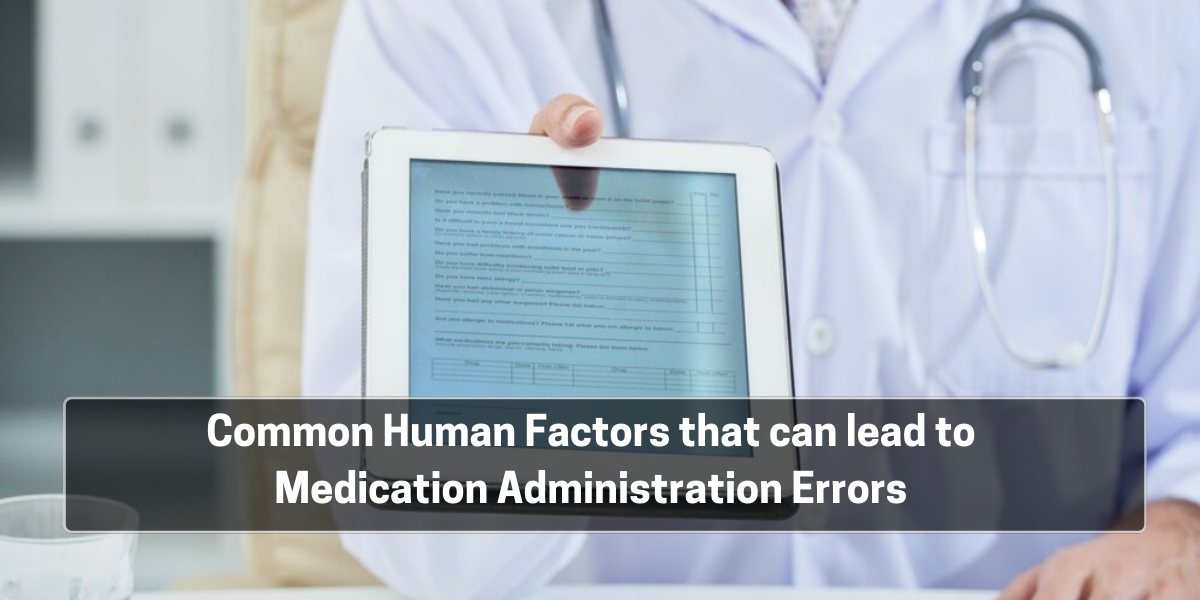Medication administration errors are serious mistakes in healthcare that can have long-term and severe consequences. These errors can be caused by various factors, including human errors. Understanding the common human errors involved in medication administration is crucial for preventing them. By identifying these errors, protocols and standards can be implemented to minimise their occurrence.
Common human errors:
- Lack of knowledge and experience: Healthcare professionals may be unfamiliar with specific medications, their administration procedures, side effects, or interactions with other drugs. Inexperience with administering specific medications can also contribute to errors. Addressing this can be achieved through intensive and regular training, ensuring staff remains updated on the latest medications and procedures.
- Absence of attention and vigilance: Long working hours, fatigue, and distractions from phone calls or conversations can impair focus and increase the risk of errors.
- Poor communication: Medication administration errors are often caused by illegible handwriting in prescriptions, misunderstandings during verbal communication, language barriers between staff, and unclear medication information. These factors can lead to confusion and mistakes in dosage, schedule, or administration route. It’s important to ensure clear and concise communication amongst healthcare professionals to prevent such errors.
- Workload and stress: Heavy workloads and high stress levels can overwhelm healthcare professionals, increasing the likelihood of mistakes.
- Organisational factors: Insufficient staffing levels can lead to missed doses or errors. Also, a lack of a culture of reporting medication errors affects improvement and allows errors to repeat.
How can electronic Medication Administration Record (eMAR) prevent medication administration errors?
- Real-time notifications and verifications: eMAR generates real-time notifications for potential drug interactions, allergies, and incorrect dosages to prevent adverse drug events.
- Automated double-checking process: eMAR systems have an automated double-check process. This process reduces the risk of administering the wrong medication or dosage.
- Barcode scanning verification: Many eMAR systems have barcode scanning technology to ensure that the correct medication is administered to the right patient at the right time.
- Immediate and accurate documentation: eMAR systems provide immediate and accurate documentation of all medication administration activities. This electronic documentation includes time stamps, dosages, and administrator identity, creating an audit trail that can be reviewed for compliance and accuracy.
- Standardised medication administration protocols: eMAR systems standardise medication administration protocols, reducing variability in how medications are administered.
- Improved communication amongst healthcare teams: eMAR systems improve communication amongst members of the healthcare team by providing instant access to medication records.
How can eMAR help you?
eMAR streamlines your medication administration records. It ensures clarity and accuracy by eliminating illegible notes and overlooked signatures. With real-time medication alerts, the risk of missed dosage is reduced. Also, the system’s efficiency significantly decreases the time required for audits and reviews of MAR sheets. Book a demo today.







